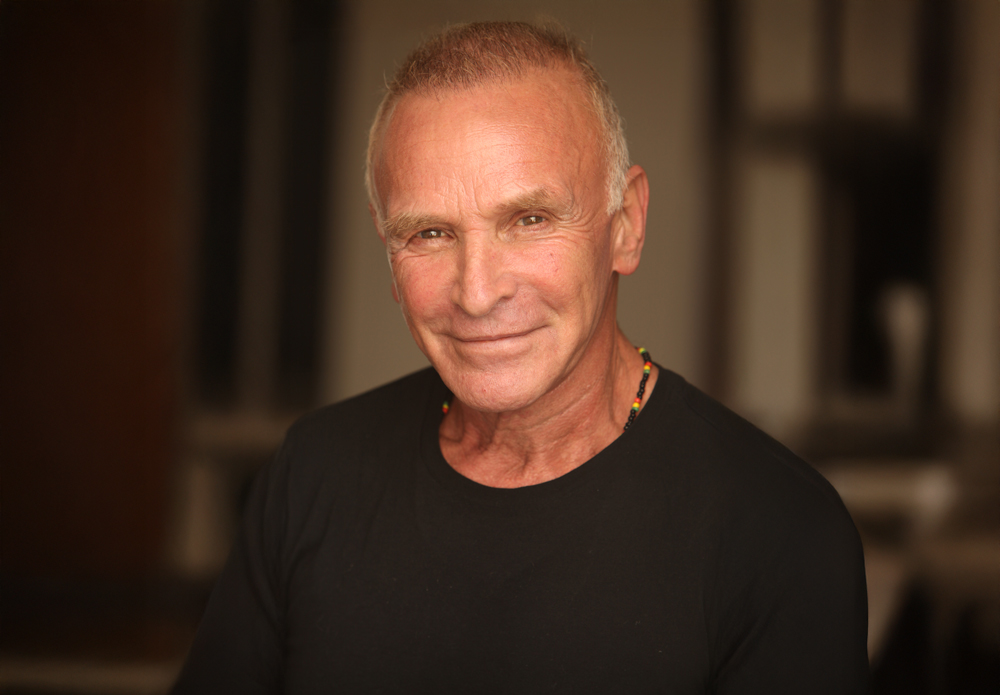Jonny Bowden, PhD, earned a bachelor’s in music, a Master’s Degree in psychology, and a PhD in integrative nutrition. He is the best-selling author of more than a dozen books including The 150 Healthiest Foods on Earth, The Most Effective Ways to Live Longer, Living Low Carb, and—with cardiologist Steven Sinatra—the controversial best-seller The Great Cholesterol Myth (Revised and Expanded Edition). A faculty member at the Functional Medicine Coaching Academy, he consults both with individual clients and with corporations in the natural health space. He is happily married to Michelle Mosher. They live in Woodland Hills, CA (with dogs) and spend as much time as possible in St. Martin, Paris … and gratitude.
www.jonnybowden.com
Lora@jonnybowden.com
@jonnybowden
Question: You have been studying and speaking about stress for some time. Has the research and your advice evolved over the years, or is the message consistent, and why?
Answer: The message has been consistent, but the number of people who are hearing that message has gone up exponentially. In the 80s, we were very much about “I’ll sleep when I’m dead.” We in the health professions knew that the people who went around saying that were going to be dead much sooner than they’d like to be, but that wasn’t common knowledge in the public. However, that’s clearly changing. Stress and stress reduction formulas are everywhere, cortisol cocktails are becoming a “thing” in trendy clubs, and the public is beginning to understand just how devastating to the metabolism, the body and the mind uncontrolled and constant stress is.
Question: How does stress impact the body? What about long-term consequences?
Answer: First let’s be clear that we’re not talking about “good” stress—small, limited exposures that stress the body just enough to strengthen our resilience. That kind of stress is known as eustress. It’s good stress—the kind of stress that feels exciting or motivating—like prepping for a big presentation, running a race or going on a first date. It gets your adrenaline going in a positive way and can enhance focus, performance and resilience.
What we’re talking about here is something very different: chronic stress. See, our stress response is part of what lets us survive as a species—it’s critical to our existence. Cortisol—the body’s main stress hormone—isn’t a “bad” hormone, you’d die without it. The problem is that the stress response was designed to be like first gear on a car—meant to get you out of emergencies (like a ditch), not meant for cruising down the freeway.
Chronic stress is like going through life in first gear. Really bad for the engine, bad for the body. Consistently high levels of cortisol will shrink a portion of the brain involved in memory and thinking (the hippocampus), affect the prefrontal cortex, which is responsible for executive decisions and attention, put on belly fat, and eat up muscle, none of which are good for your longevity, your weight or your sanity.
Question: What are the proactive measures to address stress?
Answer: Well, the classic answer to that is meditation or some kind of body work like restorative yoga. But there are a whole bunch of hacks you can use throughout the day to keep the stress pot from overboiling. Take four-minute breathing breaks at your desk. (Close your eyes and do four minutes of box breathing. You can find the instructions everywhere online.) Take a standing break, maybe do 15 air squats at your desk. Take a walk, preferably where there’s greenery—it’s one of the most restorative things you can do. Spend time with an animal. Spend time with people you love. Relax. Breathe deeply. Get better sleep. And if you want an absolute foolproof, instant change to your brain chemistry, take five minutes and write down three things you’re grateful for right at this moment. You’ll literally feel your brain chemistry change from fight or flight to rest and digest. Every one of these things can and does make a significant difference in how your body reacts to everyday stress.
Question: What are the reactive measures that you advise?
Answer: Again, everything starts with the breath. There is a reason that conventional wisdom has consistently advised people who are angry or upset to “take a deep breath,” or “count to 10 slowly.” That’s because deep breathing and anger are incompatible; gratitude and anger are also incompatible, which is why gratitude lists work so well (see above). So slow, deliberate breaths (i.e. box breathing and other variations) are a great response to stress. Taking a minute to imagine the situation from a helicopter view, seeing the long game, evaluating the long-range goals, you might find that what you’re so deeply upset about isn’t really all that important in the scheme of things. So, widen your gaze—it’s an exercise that works in meditation practice and it’s an exercise that works well in managing stress.
Question: What nutritional supplements do you recommend for stress?
Answer: Okay, well the standard ones that people use are ashwagandha, GABA, magnesium, suntheanine, phosphatidylserine and botanicals like valerian and lavender. All are good, all work for different people in different combinations. I’m very fond of a product put out by BrainMD called Calm My Brain, which is a mix of theanine, ashwagandha and magnesium. Lately, I’ve been very impressed by emerging research on black seed oil, notably the patented form called ThymoQuin, which was shown in a recent published study to bring cortisol down in athletes by a very impressive 41 percent. With all the other metabolic benefits from black seed oil, I’m beginning to consider it an essential basic for general health along with fish oil, magnesium and vitamin D.

